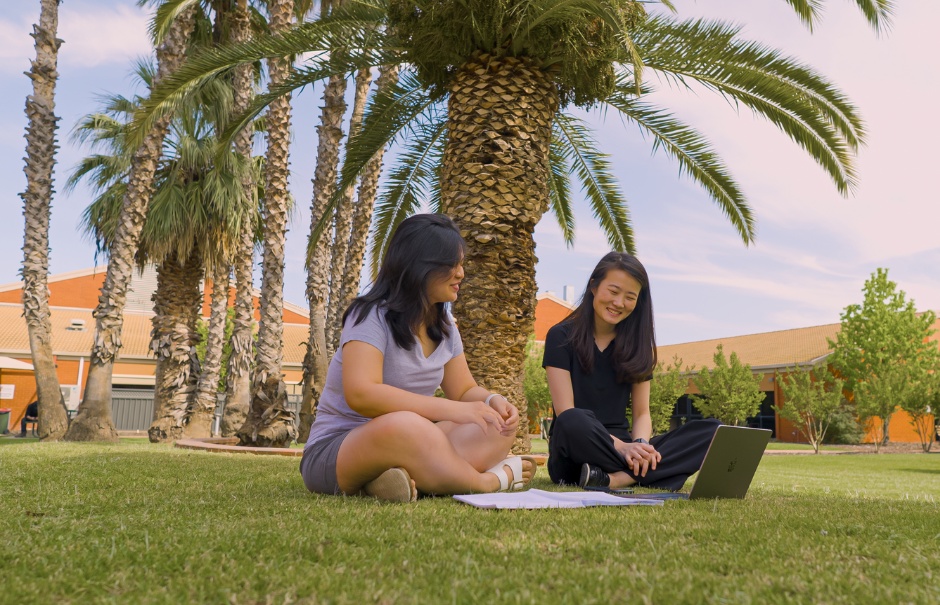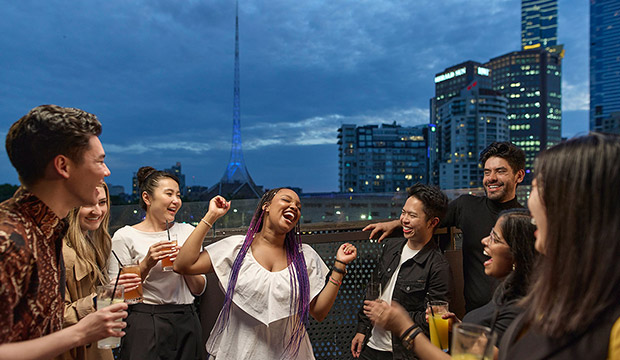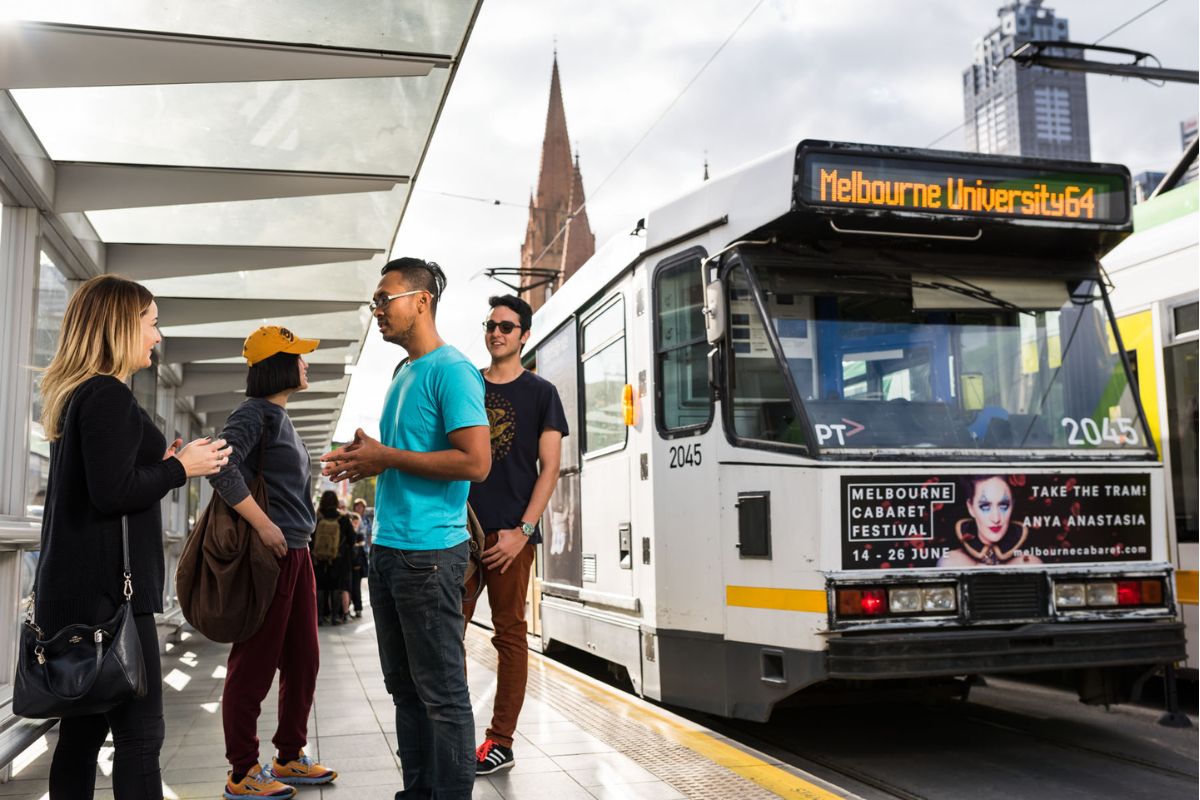If you’re planning to rent privately in Melbourne or elsewhere in Victoria, there are a few things you’ll need to know when it comes to your rights and responsibilities.
Renters Guide
The Renters Guide will take you through every stage of renting a property. Created by Consumer Affairs Victoria, it provides trusted information. It’s available online, to download, or visit the Study Melbourne Hub for a hard copy. Keep reading for more information about renting in Victoria.
Your renting rights
When living in Australia, you will enjoy the same basic rights and legal protections as anyone else in the country, including citizens.
This applies to renting as well. Your landlord or property manager must abide by the law and uphold your rights, such as by officially lodging your bond, giving adequate notice of inspections, and providing necessary repairs in a timely manner.
It’s also key to remember that your accommodation provider does not have the right or ability to challenge or cancel your visa.
Learn about your renting rights as an international student in Victoria
View transcript
[Speaker: Sintiya Khananishoo, map of Victoria on screen and sign with 'Welcome!' being written. Illustrations of different house types are drawn throughout.]
Welcome.
If you're looking for rental accommodation whilst studying in Victoria, it's important to understand the options available as different laws apply for each.
Some rentals you might see advertised include private rental, where you sign a tenancy agreement or lease, giving you a private use of a whole apartment or house.
A room in a share house, where you and your house mates are listed on the lease and pay your share of the rent.
Sub-letting, where you rent a room from a tenant.
Check that they have the owner's permission to sublet.
A rooming house, where one or more of the rooms are rented to four or more people.
Visit consumer.vic.gov.au/internationalstudents to check whether the rooming house is registered and read about the privacy, security and safety standards it must meet.
Always visit a property before you pay a deposit or bond, so you can be sure it is of the standard that was advertised.
If you pay a bond, the landlord or the owner must lodge it with the Residential Tenancy Bond Authority and give you a condition report to fill in.
If the property is damaged before you move in, be sure to record this in the condition report so you won't loose all or part of your bond when you leave.
If there is a problem with your accommodation, you have the right to ask the landlord or owner to fix it.
This will not affect your Visa.
And remember, as an international student you have the same renting rights as local residents.
If you have a renting question or problem, visit consumer.vic.gov.au/internationalstudents or call us on 1300 55 81 81.
Authorised by Consumer Affairs Victoria 121 Exhibition Street, Melbourne. Spoken by Sintiya Khananishoo.
[Consumer Affairs Victoria logo and Victoria State Government logo on screen]
Will landlords rent to international students?
As an international student, you may be worried that landlords won’t rent to you because you’re on a temporary visa.
However, this generally isn’t the case in Melbourne and Victoria at large. Most property managers and landlords will gladly rent to international students if their application fulfills the requirements (e.g. they have a positive rental record, proof of sufficient funds etc.).
It’s also important to remember that it is illegal to refuse to rent to another person because of who they are, such as due to their race, background, culture, age, ability, sexuality or gender.
Inspections and rental application processes
Attending rental inspections in Victoria is a great way to see a property in person before applying. It’s a chance to make sure the place is clean, in good condition and has everything you’ll need in your future home.
There are also minimum standards that every rental in Victoria must meet, so make sure you know these and keep them in mind as you inspect.
You can usually find inspection times posted on rental websites or by contacting the real estate agent.
Once you’ve found your perfect place, you’ll need to complete a rental application, which is usually done online.
You’ll probably be asked to provide some documents in your application, such as:
- ID (e.g. passport or birth certificate)
- Proof of employment or income (e.g. payslip or bank statement)
- Prior rental history
- Contact information for references
Note: You may not have all of these, especially if it’s your first time living away from home. If you have any questions about your application, check with the real estate directly.
Rental bidding
Rental bidding or rent bidding is the process of encouraging prospective tenants to offer above the advertised price of a unit. Another common form of rental bidding is listing a price range for a unit to secure a tenant who offers the highest price within or above that range.
Rental bidding in Victoria is illegal. This means that it is illegal for real estate agents and/or property managers to solicit such offers from you.
Signing a lease
When you rent a house or apartment in Victoria, you will typically have to sign a lease, which includes the terms and conditions of your agreement.
Alternatively, if you’re moving into a room for rent in Melbourne in an existing sharehouse, you can either be added to the lease (called a ‘co-tenancy’) or rent through the main tenant (called ‘subletting’ ).
In either case, it’s always important to read your lease or tenants’ agreement carefully to make sure you understand what you’re agreeing to.
Rental agreements vary based on dwelling type and arrangement but will typically include:
- Your rent amount and how it should be paid
- How rent increases will be calculated
- The length and type of agreement
- The bond amount
- Any other conditions or special terms
Paying a bond
When you move into a new place, you will be asked to pay a security deposit, which is called a ‘bond’.
Your bond should be paid directly to your agent or landlord, who must then lodge it with the Residential Tenancies Bond Authority (RBTA). This money cannot be used by you, your agent or your landlord for the duration of your lease.
If you damage the home during your stay beyond normal wear and tear, your landlord can request some or all of your bond as compensation when you move out.
Rental payments and increases
You will usually have to pay rent in advance before you move in. This can be a maximum of one month’s rent unless you pay weekly or you pay over $900 per week.
If you’re subletting, you may have to send your payments and bond to the main tenant.
It’s important to pay on time. Setting up a direct debit from your bank account is a good way to avoid missing a payment. While it’s illegal for your provider to charge fees for late rent, if you are habitually late to pay, you could be evicted.
You should also keep in mind that your rent may increase , so try to factor this into your budget. However, there are some important rules providers must follow when raising your rent.
If you are on a fixed-term agreement, such as a 6 or 12-month lease, your landlord typically cannot raise your rent during this time. Additionally, if your lease started after 19 June 2019, your rent can only be increased once every 12 months.
When your rent is increasing, your landlord or property manager is required to inform you at least 60 days in advance via a Notice of proposed rent increase form from Consumer Affairs Victoria. They must also share how they have calculated the new price; for example, if they’ve used the median rental value for Victoria.
If your rent is raised and you feel it is too high, you can contact Consumer Affairs Victoria to challenge the increase.
Utilities and services
Under most lease agreements, bills for utilities and other services are not included in the price of rent. This means you may need to pay for these expenses separately.
However, there are different rules for who pays for certain utilities and services, depending on what they are. It’s important to familiarise yourself with these regulations so you can ensure you’re not covering costs that are not your responsibility.
You can learn more about paying for utilities and services via Consumer Affairs Victoria.
Property maintenance and repairs
It’s part of your responsibility as a tenant to keep the place you’re renting in good condition.
This means making sure your place is kept clean and tidy. If you’re moving somewhere with a garden, check whether you are expected to maintain this yourself.
Excluding reasonable wear and tear, you should try to keep the property in the same condition it was when you moved in. Notify your property manager in writing as soon as possible if repairs are required.
Tenants’ rights in Victoria mean repairs like broken toilets, gas leaks or issues affecting hot water access are considered urgent and must be addressed by the landlord within 24 hours. Non-urgent repairs must be dealt with within 14 days.
Subletting
Many international students live in sub-letting arrangements. Problems with sub-letting is a common reason why international students contact the Study Melbourne Hub and the International Student Employment and Accommodation Legal Service.
In a sub-letting arrangement, someone (a head-renter) rents the property from the rental provider and then rents out part or all of it to another person (a sub-renter). The head-renter and sub-renter may then have a sub-rental agreement (a sub-lease).
In a sub-rental agreement, the head-renter takes on the legal responsibilities of a rental provider, and the sub-renter has the rights and responsibilities of a renter.
Who is who?
- A rental provider is usually the owner of the property. They may also be called a landlord.
- A head-renter is someone who rents the property from the rental provider and then rents out part or all of it to another person or people.
- A sub-renter is someone who rents from a head-renter.
Tips for sub-letting a room
When sub-letting a room, before you agree to move in and pay money:
- Make sure you get the full name and contact details (phone, email and postal address) of your head-renter. Without a correct name, postal address and email, it will be very difficult to take legal action if there is a problem.
- Make sure you get the key terms of your agreement in writing (for example, the amount of rent and bond, when you will move in and how long you will stay).
- Ask the head-renter to show you they have written permission from their rental provider to sub-let the room.
If you have permission from the rental provider to sub-let the room, you should be protected by rental laws if you have a problem. If you do not have permission, you may not be covered by rental laws. This can mean that common rental problems such as issues getting your bond back, getting repairs done and eviction are more likely to occur and may be harder to fix.
If a renter sub-lets without the rental provider’s written permission, the rental provider might also be able to end the renter’s rental agreement. This means everyone living on the property may be told to move out with just 14 days’ notice.
If you are a head-renter sub-letting a room, you have responsibilities. You must seek permission from the rental provider before sub-letting. If you take a bond from the sub-tenant, it is your responsibility to complete the Bond Lodgement form and lodge the bond with the RTBA.
Fire alarm fines in student accommodation
In student accommodation, when a fire alarm sounds, firefighters will attend the building. If the fire alarm is set off for reasons other than a fire, for cooking smells or shower steam for example, it is called a false alarm.
Fire Rescue Victoria considers the owner/s of the student accommodation building to be responsible for the fire alarm system. A fee for a false alarm will be sent to the owner of the alarm system.
Fire Rescue Victoria does not support the owners of student accommodation passing on the call out fee to students residing in the building.
If you are a student and you receive a false alarm fee, you can appeal this through the Victorian Civil and Administrative Tribunal (VCATO. You can get more advice about your rental rights from Study Melbourne.
Where to get help
If you think you’ve been the victim of a scam or are unsure about a situation, the Study Melbourne Hub is always here to support you. You can make an appointment to get free legal advice about accommodation issues.
If you think you’ve been scammed, these are useful links for where you can get help
- Consumer Affairs Victoria website contains information for renters, and you can contact them directly if you need more help.
- Tenants Victoria contains information and advice on starting and ending a tenancy, common rental problems and language resources.
- Australian Cyber Safety Centre for advice about keeping your information safe if you’ve provided personal details to an unknown site or person
You can report accommodation scams by contacting:
Page last updated:




